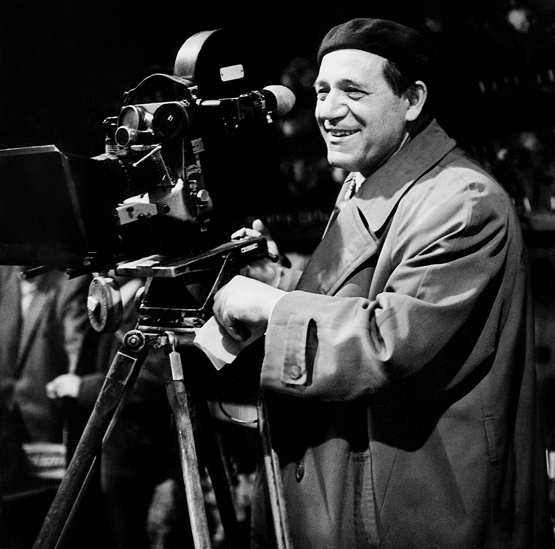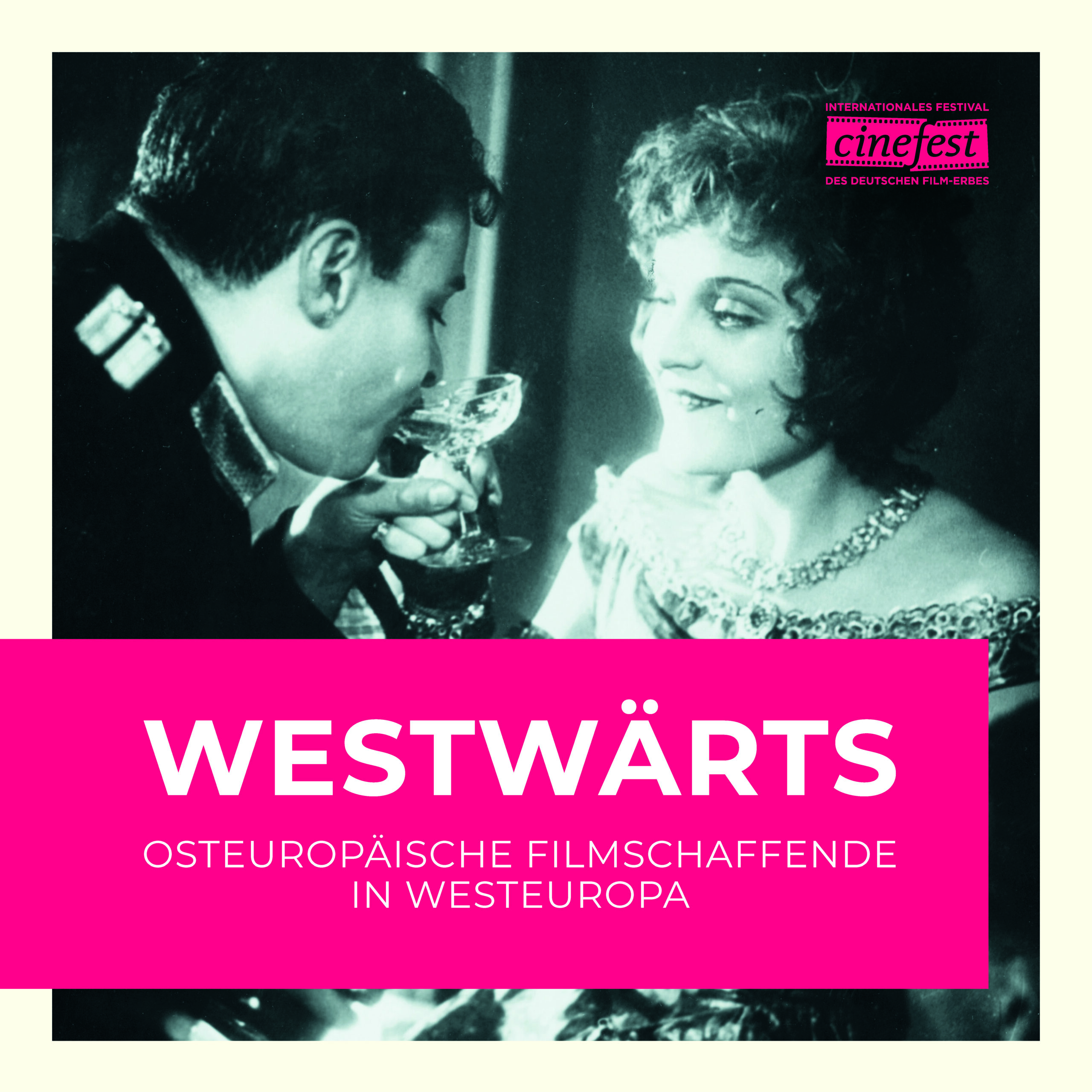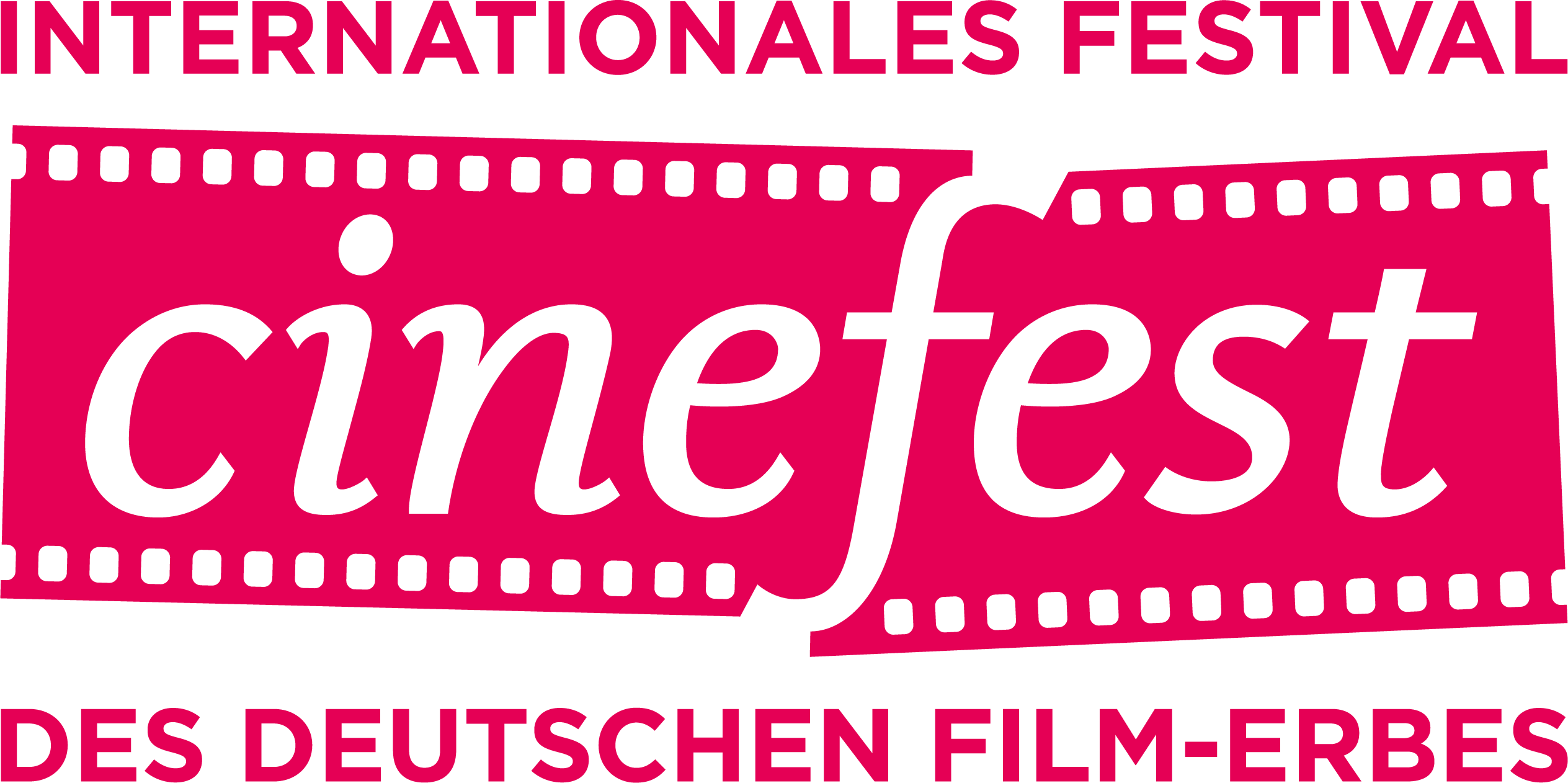18th cinefest - International Festival of German Film Heritage
Go West! Eastern European Filmmakers in Western Europe
12 - 21 November 2021
Online Workshop: 6. Mai 2021

In recent decades, the fate of Eastern and Central European, Jewish filmmakers who, while working in the German speaking film industry were driven into exile by the Nazi’s racism, has been relatively well researched – not in the least through CineGraph and cinefest. But in addition there are countless filmmakers of all trades from Eastern and Central Europe who worked in Western Europe in the 20th century; whose careers have been far less researched. They migrated not only in reaction to political upheavals (from the “October Revolution” up to the end of the Prague Spring), but also to improve their professional opportunities. Their careers and experiences in the west spanned a diverse spectrum of both success and failure.
One example, Latvian actress Marija Leiko travelled from Riga (then Russian Empire) to Germany, where she became a star in silent film. As sound films became the market standard, her film career ended and she returned to Riga. During the Stalinist terror, she was shot by the NKVD in 1938 (rehabilitated in 1957). Her partner Janis Guters (Johannes Guter), with whom she had come to Berlin, worked in the theater until he made his debut as a film director in 1917. He directed numerous films in Weimar cinema, then stayed in Nazi Germany and ended his film career with a series of “Tran und Helle” propaganda shorts. He died in the GDR in 1962.
After the founding of the Soviet Union, numerous Polish and Ukrainian filmmakers (from the Russian Tsarist Empire) were faced with the choice of either continuing to work under the strong influence of Moscow or go West. The rift even ran through families: while David Kaufman (Dziga Vertov) became a major representative of Soviet documentary film – supported by his brother Mihail as his cameraman, his other brother Boris went to Paris via Berlin in 1917 and eventually won an Oscar as director of photography.
After 1917, Russian set designer and film architect Andrej Andrejev decorated numerous important films in Berlin (THE 3 PENNY OPERA), London, and Paris. After having worked closely with the German occupation company Continental (LE CORBEAU) during World War II, he no longer received commissions in France and went to England (THE MAN BETWEEN) and the Federal Republic of Germany (MADELEINE UND DER LEGIONÄR). His colleague Jacek (Jacques) Rotmil worked widely in the German film industry (more than 150 films) and from 1932 in Poland. After the German invasion, he went underground and was shot in 1944.
Possible candidates from Czechoslovakia with interesting careers are producer Miloš Havel, writer & director František Čáp, director Stanislav Barabas or cinematographer Igor Luther, whose biographies can be used to illustrate the different political relationships between the German Reich, Czechoslovakia, the “Protectorate of Bohemia and Moravia” and the Federal Republic.
The DEFA Foundation is currently working on the work of Slatan Dudov (1903, Bulgaria – 1963, GDR). It includes about 10 films, which – as well as his career in the Weimar Republic, in France and in the GDR – will be a focus at cinefest.
In cooperation with colleagues from Eastern European film institutes and archives (e.g. in Riga and Kiev), we are researching numerous “fractured” careers of filmmakers from Eastern and Central Europe to Western Europe. We will present an interesting in-depth cross-section of such largely forgotten filmmakers at cinefest 2021.

cinefest catalog 2021
A detailed catalog with reviews and materials on the films and themes of the festival is published for cinefest
Integraler Bestandteil des Festivals ist der 34th International Film History Conference.
Discussion forums on current and archival topics accompany cinefest


